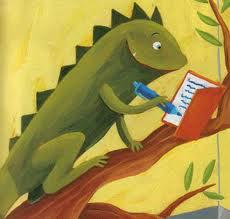 Aiming for a book deal with an agent or publisher as a New Year’s goal? Here are some tips on how to hook ’em from myself and other experts published in Nonfiction Authors Association:
Aiming for a book deal with an agent or publisher as a New Year’s goal? Here are some tips on how to hook ’em from myself and other experts published in Nonfiction Authors Association:
NFAA: What is the best piece of advice you’d offer to a new author seeking a book deal?
DONNA HARTLEY: Edit! Edit! And edit some more. Trust your intuition when you write. One of the most important aspects is having a platform. A strong platform for marketing your own book is what agents and publishers are looking for. Two ways you can do this: 1) Create a solid social media presence. Make sure you keep your numbers growing. Have at least three or four social media outlets you post to on a regular basis. Short YouTube messages (less than 2 minutes) where you brand your name, topic, and expertise is a powerful tool. 2) Speak to groups. This is a great way to start developing your audience since book sales are a natural after giving a presentation.
Donna Hartley, author and National Speakers Association member, is an inspirational speaker, a former Miss Hawaii and television actress, and has shared her compelling story on NBC, ABC, PBS, and in The New York Times. http://donnahartley.com/
LISA ALPINE: Try your darndest to make sure your proposal and manuscript are perfect—tightly written with no spelling or grammar mistakes. Don’t rely on your agent or publishing house to clean up your mess. Research your competition and comparable books on the market and know your target audience. This will help the agent/publisher to get a handle on your book. Do the best you can do—with large dollops of patience—and trust that you are meant to write and sell your book.
Lisa Alpine is author of Wild Life: Travel Adventures of a Worldly Woman (Foreword Reviews’ Gold Medal winner INDIEFAB Travel Book of the Year) and Exotic Life: Travel Tales of an Adventurous Woman. www.lisaalpine.com
BROOKE WARNER: Be sure you know your own boundaries before you embark on your publishing journey. Remember that agents and editors are human beings with subjective tastes in books. Be open-minded about feedback and suggestions for changes to your manuscript, but do not capitulate or compromise just because someone has taken an interest in your work. Make sure someone who wants to publish your book can tell you what they bring to the table, and how they envision either representing you or bringing your work into the world. I think it’s less important that a person fawns over your book than it is they have a plan, a timeline, and offer you accountability on their end. You can expect that from an agent and/or an editor. Resist the notion that this has to be anything but a relationship of mutual respect and transparency. What you bring to the table is not only important, it’s what this industry is built upon. It’s sometimes too easy for industry professionals to forget that the author and their work is the only reason book publishing exists. So you mustn’t forget or dismiss your own value as you pursue publication. Good luck!
Brooke Warner is publisher of She Writes Press and SparkPress, president of Warner Coaching Inc., and author of Green-light Your Book, What’s Your Book?, How to Sell Your Memoir, and the co-author of Breaking Ground on Your Memoir. www.brookewarner.com
SARAH BURLETON: Know your message. You wrote your book for a reason; you had a story to tell and a message that you needed to get out and share with others. Your message can’t be “selling a lot of books” or “just helping people.” Your message needs to be strong and unique to you and your situation. Mine is “Strength over Adversity” and I made sure that message was echoed throughout each of my books. If you don’t know the purpose of your book, how can you expect a publisher or agent to figure it out? Don’t try to be someone you aren’t. Don’t try to sell yourself as the next David Pelzer or Seth Godin. Sell you, sell your story, sell your message; don’t fake it just to get through the front door.
Sarah Burleton is a New York Times bestselling author and spokesperson for Prevent Child Abuse Illinois.
RACHEL ASTARTE: Before you worry about negotiating royalties and movie rights for your book, be sure you hire a professional proofreader/editor to review your manuscript before you even send it out for consideration. You may have the most brilliant book in the world, but if it’s full of typos and errors, it will not be taken seriously. (This goes for all correspondence as well.) Submissions editors at publishing houses have mountainous piles of manuscripts to get through. If you want your book to stand out, it should at least be free of errors. In order to get the most attention, you need to present yourself—or in this case, your manuscript—in the best light.
Rachel Astarte is a transformational life coach and the author of Celebrating Solitude: How to Discover and Honor Your Highest Self. http://healingartsnewyork.com
Thank you! I have my manuscript under consideration at a publisher right now, so this advice is stellar.